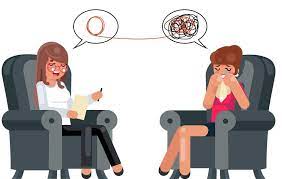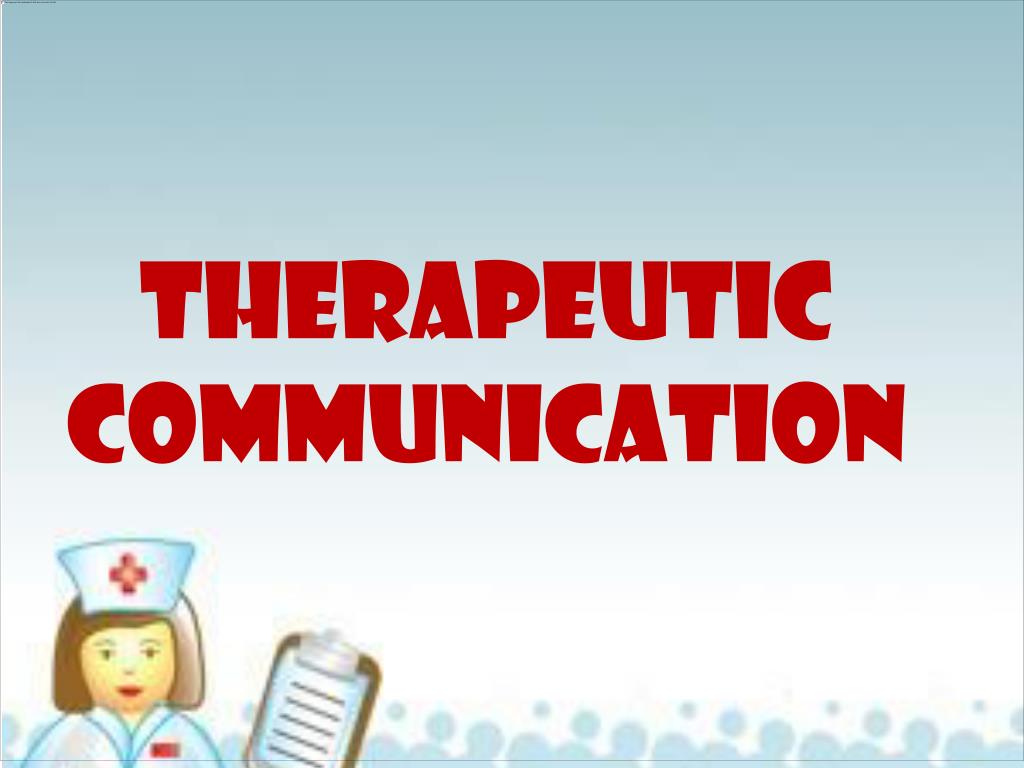Contents
- 1 What is a Therapist?
- 1.1 Types of Therapists
- 1.2 What is Therapeutic Communication?
- 1.3 How do Therapists Help People?
- 1.4 Why Should Someone See a Therapist?
- 1.5 How to Find the Right Therapist?
- 1.6 Tips on Finding the Right Therapist
- 1.7 Average Cost for a Therapist
- 1.8 What to Expect in First Few Sessions?
- 1.9 Impact of a Therapist
- 2 Conclusion
What is a Therapist?

A therapist is a mental health professional. He provides assistance to people suffering from emotional or psychological difficulties. There are many different types of therapists. They all work with a client in order to help them achieve their goals and live a happier life.
A therapist will listen to their client, ask questions if necessary, and provide tools for them. They can use them between sessions so they may practice what is being taught. The specific therapy used by a therapist depends on the training they have received and their particular specialty.
Types of Therapists
These are different types of therapists:
Psychologists

Psychologists study animal and human behavior to treat issues, such as stress, depression, substance abuse, and anxiety. They often conduct research studies to discover new methods. They work for the improvement of patient’s quality of life.
Occupational Therapists
These therapists use various means to improve a patient’s ability to perform daily life activities. They work with children and adults. They also work with people who have difficulty with personal hygiene, speech, sleep, memory, and attention span.
Social Workers
Social workers provide advice and assistance to people who are dealing with difficult life situations. These situations may include divorce or the death of a loved one. They help clients deal with abuse, addiction, mental illness, and homelessness.
Marriage & Family Therapists
Marriage and family therapists work primarily with issues related to family dynamics. Problems they address include alcohol abuse in the home, conflict resolution between parents/siblings/children/spouse, and parenting skills for single or divorced parents.
Pastoral Counselors
These experts help people deal with spiritual issues. They use the teachings of their religious faith to provide comfort, support, and guidance. As you can see, there are many therapists available to assist patients suffering from emotional difficulties.
What is Therapeutic Communication?

Therapeutic communication is an intentional process. The therapists use to engage with their patients/clients in order to elicit change. It has four distinct components: empathy, genuineness, non-judgmental attitude, and congruence. The therapist must be empathetic towards the client’s situation by listening intently. He/she should ask for necessary details in order to gain a better understanding of what the client experiences. They must exhibit genuineness, or speak to the client in an open and honest way without judgment. The therapist’s attitude should be non-judgmental by demonstrating acceptance towards their patient/client. Finally, therapists must behave congruently with their words. It means staying true to their own character at all times instead of pretending to be someone they are not.
Components of Therapeutic Communication
Therapeutic communication applies these four components in order to create a warm environment for patients/clients. It allows them to feel safe enough to start discussing difficult topics. Once the patient feels comfortable sharing information, then therapeutic progress can begin. The goals are set and reached through effective sessions.
If a clinician exhibits strong therapeutic communication skills, they will encourage patients to express their emotions. The therapist should act as an unbiased third party who is not afraid to ask questions if necessary in order to gain clarification. Through effective communication, the patient’s trust in the therapist increases. It creates opportunities for open dialogue and progress between sessions.
When creating a safe space with the patient, it is important that therapists use nonverbal cues. These cues include nodding or smiling during the conversation. Therapists must remember that the words they choose to use will play a huge role in helping the patient/client feel comfortable enough to open up about their issues. For example, instead of saying “Your thoughts are not valid,” a therapist should say, “What you’re going through is understandable.” Saying this would hopefully help a client feel more supported and understood rather than invalidated.
Benefits of Therapeutic Communication

Therapeutic communication has many benefits for both patients/clients and therapists. Patients with emotional difficulties often have difficulty maintaining eye contact during the conversation which leads them to speak about irrelevant topics or go off on tangents. In combination with the four components of therapeutic communication, therapists’ use of nonverbal cues enables patients to feel safe enough to open up about difficult subjects (Jarero & Padilla-Walker 2012). For example, a therapist who nods or smiles while their patient/client is talking will help create an honest dialogue between the two parties so progress can be made.
Therapeutic communication benefits therapists by allowing them to form strong relationships with their patients because it requires mutual trust and respect for one another. Patients rely on their therapist to guide them towards emotional, mental, and physical well-being. It is beneficial for the therapist to keep the patient involved in the process through their active listening skills which will help them.
How do Therapists Help People?

A therapist can help a person by analyzing how they feel and why then formulating a plan to help overcome that problem. They may work with patients in many different ways, including giving advice on how to cope with the situation at hand, psychotherapy, cognitive behavior therapy, or other methods. A therapist has been trained in mental illness and learning disabilities so they know the best way for their patient to recover.
Why Should Someone See a Therapist?
People see a therapist for many different reasons, but there are a few common ones.
- The most common reason is depression and anxiety, which often go hand in hand. According to the World Health Organization, “Depression is a serious public health problem that is strongly associated with suicide.” There are many effective treatments for depression and anxiety, including therapy.
- Therapy can improve your emotional well-being by allowing an individual to process their past traumas, clear out negative thoughts from the present, and work on their future goals.
- It can also help with managing difficult relationships or behaviors. You may start therapy because of a relationship issue with your spouse or children, for example.

- It’s important to note that if you’re someone who is suffering from a traumatic event, it may be best to talk about your experience with someone who specializes in post-traumatic stress disorder.
- A therapist who has the knowledge and tools to help you through this difficult time will not only make you feel better but can also help process the event so that you’re ready to move forward pleasantly with your life.
How to Find the Right Therapist?

Seek out a therapist who specializes in your area of concern, has experience working with people like you, and is accepting new clients. Look for someone that makes you feel comfortable when talking about sensitive topics or issues that are difficult to talk about. You can ask friends what they recommend based on their experiences seeing therapists themselves. If this isn’t an option consider looking online for therapy providers near your location. There are many websites where you can get recommendations from other members of the community at no cost to yourself.
Tips on Finding the Right Therapist
Finding the right therapist can be a daunting task. The good news is that there are many ways to find the right one for you. One of the most effective methods is through word of mouth. This means reaching out to people who have been in therapy before and asking them about their experiences. Another option is browsing online, which you can search by location or by type of therapy. You’ll want to check more than one site, as each site has different therapists with different levels of experience and expertise.
You might also know some reasons why you haven’t seen a therapist before and want to make an appointment. The best thing to do is just to go into your next appointment open-minded and willing to share your emotions.
Average Cost for a Therapist
Therapy can be expensive, depending on the location you live in. Insurance can help with some of this because many providers offer mental health coverage. If not, there are other options than seeing an in-person therapist like online therapy or life coaching services.
Working through tough times in your life is not easy. A therapist will help you to feel better about yourself even in this situation. Seeing a therapist is something that has helped many people before, and it can help you too.
What to Expect in First Few Sessions?
The first few sessions with your therapist will be for getting to know each other better. You’ll need to talk about what brought you to therapy and the issues you’re struggling with. It’s common for therapists to ask their clients what they think they can do by coming into therapy. You can also expect an assessment that will tell your therapist more about your diagnosis. Also, how strong the symptoms are, and if they’re persistent or getting worse.
Impact of a Therapist

The impact of a therapist is tremendous. It’s hard to define the value of what goes on in the office. It’s easy to see how effective treatment can be. A therapist might not cure you of your condition, but they can make sure that your condition doesn’t get worse. They make sure that you know what you need to do to manage it now and in the future. They’ll teach you coping mechanisms and skills during therapy sessions. This will help to reduce the pain and mental strain you’re experiencing.
Therapy can be a great way to learn how to manage your depression or anxiety without any medications. You’ll work with an expert who knows about your treatment methods. They can guide you through whatever struggles you face without having too much difficulty or being too overwhelmed. They can help you to manage your mental disorders.
Conclusion
The truth is that no one should have to feel alone. Everyone needs a little help from time to time. Some are those who dedicate their lives to being the supportive ear or helping hand. You may not realize that you needed until it’s offered. Therapists can be a great resource for anyone looking for someone understanding and non-judgmental. With whom they can share what they’re going through without fear of judgment or criticism. If you know someone in your life who could benefit from talking with a therapist, don’t hesitate to recommend them. You never know how much relief such an act might bring them.
For more information, please contact MantraCare. Online therapists are increasingly important in today’s world because they provide a convenient and accessible way for people to receive mental health support and treatment. Visit MantraCare If you are searching for “therapist near me”. Book a trial Online therapy session



